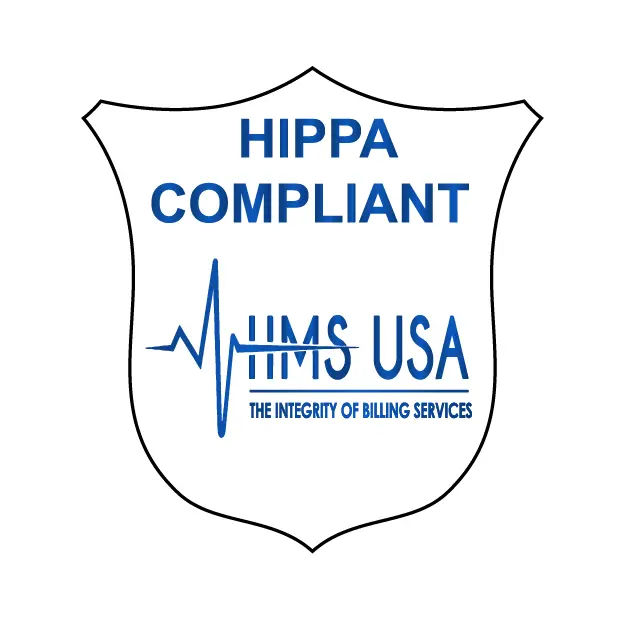
Mental Health Billing Tips
Emotional wellness is prioritized in the provision of mental health care. A sound mind equals a good body, after all. Mental health practices must embrace a wide range of therapies and tools to facilitate the upkeep and billing of their patients. Errors in billing may severely slow down the treatment process and significantly impact patients’ quality of care.
Insurance policies may be pretty picky when covering mental health care costs. Furthermore, mental health coverage limits in medical insurance add challenges for the treating physician.
Mental health workers often struggle to care for patients and submit insurance claims. Working closely with their doctor is essential for improving a patient’s mental health. If treatment is only partially coordinated, there will be adverse effects and many complications for the practice and the patients.
Therefore, everyone must fully grasp the mental health billing tips. This article explores effective tricks for boosting efficiency and streamlining billing.
Here Are Seven Mental Health Billing Tips For Your Claim!

1. Check Your Customer's Insurance
First, the Mental health billing tips are about checking your customer’s insurance. Before seeing a client, verify their health insurance coverage. Validating coverage is time-consuming, but it’s worth knowing that your customer is covered and how much the insurance company will pay for your services. You can verify your insurance coverage with certain providers online, while others will have you call them.
However, it is only sometimes feasible to check coverage before each visit. Verify insurance coverage at least once before beginning treatment and again each January when policies typically renew or if you receive new information about your client’s insurance.
2. Validate the Patient Data
As a mental health practitioner, you know it’s crucial always to keep your patients’ current information. Therefore, it always helps to double-check your work.
Otherwise, the billing process would become more challenging, mistakes accrue, and claims get refused. Along with the potential increase in patient annoyance caused by the errors, practices may also see a considerable decline in efficiency.
To check whether your patient is covered, you may do a VOB. After completing this procedure, you will better grasp your patient’s insurance plan, allowing you to provide better care.
Because patients may need to remember to tell their doctors about changes, verifying their insurance coverage before treating them is a good idea if they need prior permission or have made any changes to their insurance plan. Double-checking this vital component may teach you how to charge insurance for services given correctly.
3. Perform a Benefits Check
You must confirm the patient’s insurance coverage and the planned services via the Verification of Benefits process.
During this method, clinics may research patient insurance policies and learn specifics not often included on a card. It is a crucial step in easing the mental health billing process, as many patients have current coverage, but the treatments may not be paid as a benefit.
The results of a VOB will tell you whether or not the services you’re looking at get covered by insurance. Get in touch with the insurance provider using the patient’s account number. However, doing this action by hand is not required.
The latest developments in digital technology have been quite helpful. One can use technology in mental health facilities to facilitate the VOB procedure. These choices have restrictions, but they might help the medical personnel save a lot of time.
A VOB may help ensure that all of a patient’s medical expenses are covered after they have been incurred.
4. Submit Claims Correctly
You may put in extra effort and go the extra mile to file your claims. If the invoice is incorrect, the action will have been in vain. Undeniably, one should be compensated for services performed; yet, if payment gets denied, it may be harmful to the practice and incredibly irritating when the staff has put forth much effort to resolve the patients’ difficulties.
Before submission, the billing format should be adapted to the insurance company’s requirements. Filing timely claims according to the insurance company’s guidelines might simplify the process. To maintain a competitive edge for the insurance company, asking them about the specifics of their filing and submission requirements is a good idea.
Insurance companies accept both the CMS-1500 and the UB-04. If mental health clinics were more versed in this information, they would file claims with more confidence and less fear of rejection.
5. Recognize the CPT Code
Regarding invoicing for mental health services, Common Procedural Technology (CPT) codes are essential since they indicate the specific kind of service provided. Likewise crucial is identifying and recording the basis for the medical need upon which the ICD codes are based.
You might impact claim submission significantly by using an incorrect CPT code. As a result, it’s crucial to avoid making any mistakes, even unintentionally.
By assigning specific CPT codes, you may ensure that your mental health treatment gets reimbursed following its scope of coverage. Time-based codes indicate how long a session lasted or whether or not the patient was present, such as
- CPT 90832 for patient-centered psychotherapy lasting 30 minutes,
- CPT 90847 for family or couple therapy lasting 50 minutes with the patient present and;
- CPT 90853 for group therapy that did not involve a family.
Under coding and upcoding are two more types of inaccuracies that may occur in addition to mismatches between ICD and CPT codes.
- The term “under coding” refers to assigning a CPT code that is less severe or less costly than the actual diagnosis or treatment received by a patient.
- In healthcare, “upcoding” occurs when a practitioner gives a patient a code that indicates a more severe diagnosis or more costly therapy than is warranted.
Both Under coding and upcoding are fraudulent practices since they misrepresent the services provided to payers. However, even if they weren’t meant to be, these mistakes might be made by incompetent developers who need more expertise and training. Avoiding penalties requires careful consideration of CPT code distinctions and appropriate code use.
6. Claim on Time!
Claims must often be submit to payers within a specified time frame, typically between 30 days and 18 months. Your practice will only be reimbursed for the service if the claim is accepted because it does not meet this condition.
Ensure all claim submission on time by establishing a regular billing plan for your practice. For instance, if your clinic bills patients monthly, no insurance company will ever get a late claim because of your facility.
7. Perform Denial Analysis
Last, mental health billing tips are about performing denial analysis. Having completely error-free billing submissions is an objective that practitioners of all stripes strive for, but only some achieve. If an insurer denies a claim, they must give a reason.
You are welcome to resubmit your claim once the issue has been resolved. Look at the patterns in your most recent denials to see where you may change how you handle them.
Do you, for instance, see many denials owing to incorrect patient information? If that’s the case, you should get updates more often. Is there a delay in the submission of claims? Think about bringing the timing in or charging more frequently. Be sure that your first claim submission and any necessary resubmission fall within the timeframe permitted by your insurance company.
Some Tips for Simplifying Mental Billing Process

Each insurance provider may have requirements for how a claim will present and what information must be included. Here are two suggestions to help your mental health clinic handle the billing procedure more smoothly.
Make Use of In-House Software Resources
Electronic health record (EHR) programs let users create claims for direct submission to third-party payers such as health insurers, Medicare, and Medicaid. Electronic claims are simple to make and submit.
In addition to the essential functions of a standard electronic health record (calendar, appointment reminders, streamlined paperwork, internal communications, patient portal, and payment card processing), an EHR may include a wealth of additional features.
Consider getting an electronic health record system designed with mental health professionals’ needs.
Consider Using a Third-Party Billing Service
Claims filing requires a lot of time and effort, so having a third-party billing service handle the process may free clinic staff to concentrate on patient care.
These businesses provide a wide variety of services to accommodate your requirements. Some outsourced billing businesses additionally provide pre-authorization and verification of benefits services, claims follow-ups, and resubmissions in case of denial or rejection.
Conclusion
Spending less time on billing means more time for client service. There are many elements and pieces to Mental health billing tips. The billing procedure for mental health professionals may be difficult but not impossible. So, you must follow the mental health billing tips.
It can be challenging to determine which changes to a process will have the most significant overall effect. In addition, if you speed up the billing procedure, you can get paid more quickly. But, if you look into these tips, you will get the proper refunds on time.
Read More: How Is Mental Health Billing Different From Medical Billing?
What is The Mental Health Billing Code?
CPT Codes 90846 and 90847 are designated for family psychotherapy services to treat mental problems.
What Reason For Code 90837?
Psychologists who see patients for over 60 minutes should use the CPT code 90837, "Psychotherapy, 60 minutes with a patient."
What is Mental Health Software?
Psychiatrists, psychotherapists, therapists, coaches, and other behavioral health providers had a hand in developing mental health software better to meet their clients' special care and administrative needs.
What are Mental Health Methods?
When a person with a mental disorder seeks help from a licensed therapist, they receive psychotherapy. Psychotherapy aims to foster emotional and behavioral change to enhance one's quality of life.
What is Mental Health Tracking?
Mood tracking is a strategy used in positive psychology to promote psychological well-being by keeping a journal of one's emotional states over time.







